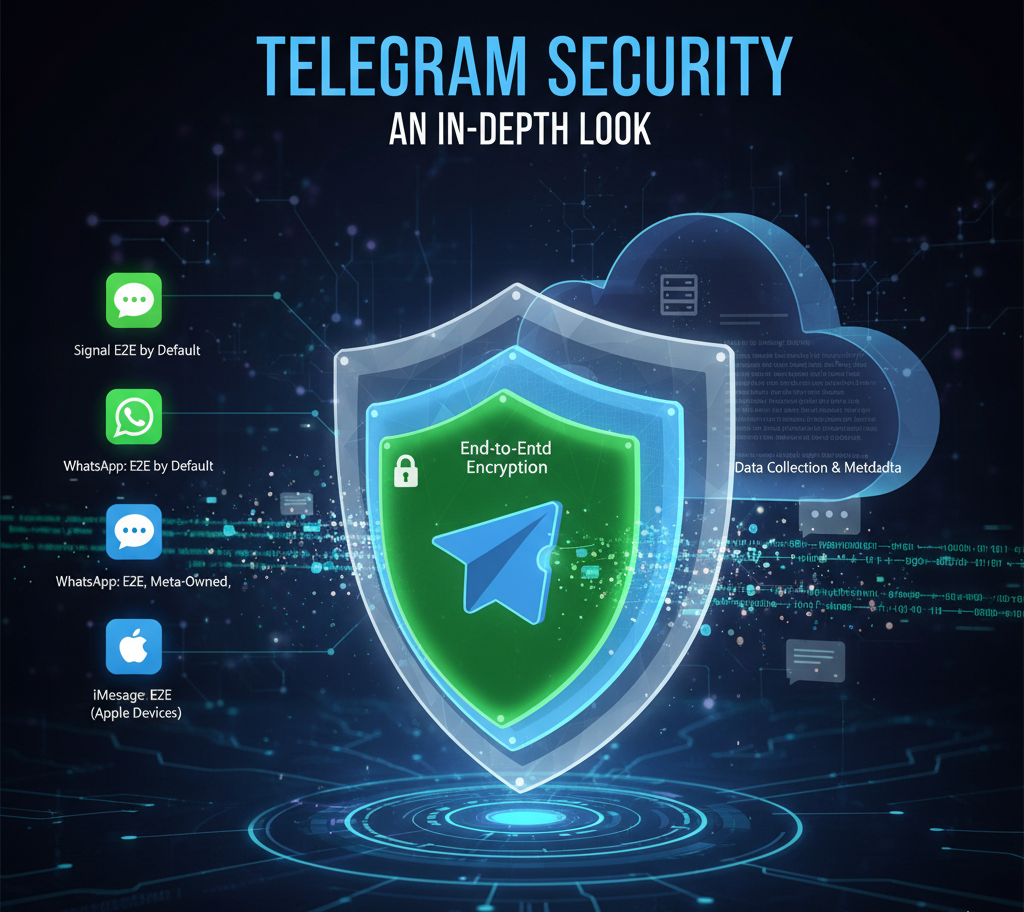Telegram has rapidly emerged as one of the fastest-growing messaging platforms globally.Its user-friendly interface, synchronization across devices, and customizable channels have drawn millions who value both convenience and privacy.In contrast to conventional social applications, Telegram positions itself as a more secure option compared to well-known messengers such as WhatsApp and Facebook Messenger.Nevertheless, with its increasing popularity, concerns and uncertainties regarding its actual security have arisen.
How Telegram Stands Out
On the surface, Telegram functions like any other messaging service: users can send messages, make calls, share media, and create group chats. Yet, several features distinguish it:
- Cloud-Based Storage: Messages and media are saved on Telegram’s servers, enabling seamless access across multiple devices.
- Large Group Support: Groups can include up to 200,000 members, making it ideal for communities and public channels.
- Bots and Automation: Developers and businesses can deploy automated tools for engagement and services.
- Custom Privacy Controls: Users can manage who sees their profile photos, last seen status, and phone numbers.
These functionalities position Telegram as more than just a messenger it’s a platform for communication, content sharing, and community engagement. However, this cloud-based design raises questions about the security of user data.

Examining Telegram’s Encryption
Telegram promotes security as a key feature. It uses a proprietary encryption protocol called MTProto, which combines AES encryption, RSA encryption, and Diffie-Hellman key exchange. While technically strong, Telegram’s encryption approach differs from apps like Signal or WhatsApp: end-to-end encryption is not enabled by default.
Standard cloud chats encrypt messages between the user and Telegram’s servers, meaning the platform technically holds the keys. Conversely, secret chats are fully end-to-end encrypted, ensuring that only the sender and recipient can read the messages, with no access even for Telegram.
This dual system allows flexibility but also creates potential vulnerabilities if users are unaware of which mode they are using.
Cloud Chats vs. Secret Chats
Understanding the difference between cloud and secret chats is crucial:
- Cloud Chats: Default chats accessible on all devices, automatically backed up, and fast. However, Telegram retains access to encryption keys, so these chats are not fully private from the company.
- Secret Chats: Offer device-to-device encryption, cannot be forwarded, do not appear on other devices, and can self-destruct after a chosen time. While more secure, secret chats lack cloud backup and have limited cross-device usability.
Users must choose between convenience and maximum privacy.
Data Collection on Telegram
Many users wonder if Telegram collects data like other platforms. According to its policies, Telegram gathers minimal data contact information, IP addresses, and device details to improve service and prevent spam. Unlike many platforms, it does not sell or share this data with advertisers.
However, Telegram’s centralized servers still store metadata on user activity. Although the platform claims it only shares data under legal orders for terrorism or major crimes, the potential for access exists. Transparency reports indicate that such requests are rare, yet centralization remains a concern for privacy-conscious users.
Common Misconceptions About Telegram Privacy
Several myths about Telegram’s privacy can be misleading:
- All chats are end-to-end encrypted: Only secret chats provide true end-to-end encryption.
- Telegram is completely anonymous: While phone numbers can be hidden, IP addresses and device information are collected.
- Telegram sells user data: There is no evidence of this; revenue comes from premium features and advertising in public channels.
- Telegram is immune to government intervention: The app has faced bans and legal challenges in some countries, proving no platform is fully untouchable.
Awareness of these realities helps users make informed choices about using Telegram securely.
Expert Insights on Telegram’s Security
Cybersecurity experts often describe Telegram as “secure, but not flawless.” Its encryption is strong, and its privacy policies are more transparent than many competitors. However, security largely depends on user behavior: not using secret chats or sharing sensitive information publicly can compromise privacy.
Some researchers express concerns about Telegram’s proprietary protocol, noting that open-source protocols like Signal’s have undergone more public review. Nevertheless, Telegram is praised for balancing usability, performance, and privacy. Experts generally agree: Telegram is safe for everyday communication, but not for highly sensitive data.
Conclusion
Telegram combines speed, functionality, and privacy controls effectively. Its layered encryption, flexible settings, and user-centered approach make it a strong option for secure communication. Complete safety, however, depends on user awareness: choosing secret chats, avoiding sensitive data in public channels, and understanding cloud limitations are key.
As digital communication continues to grow, professional and personal users alike must balance convenience with caution. Platforms like Wiraa, which connects remote professionals globally, emphasize secure communication and trust, reinforcing the need for privacy in modern digital workspaces.
Ultimately, Telegram is as secure as the user makes it. Informed use and platforms prioritizing privacy can make digital communication both safe and efficient.




